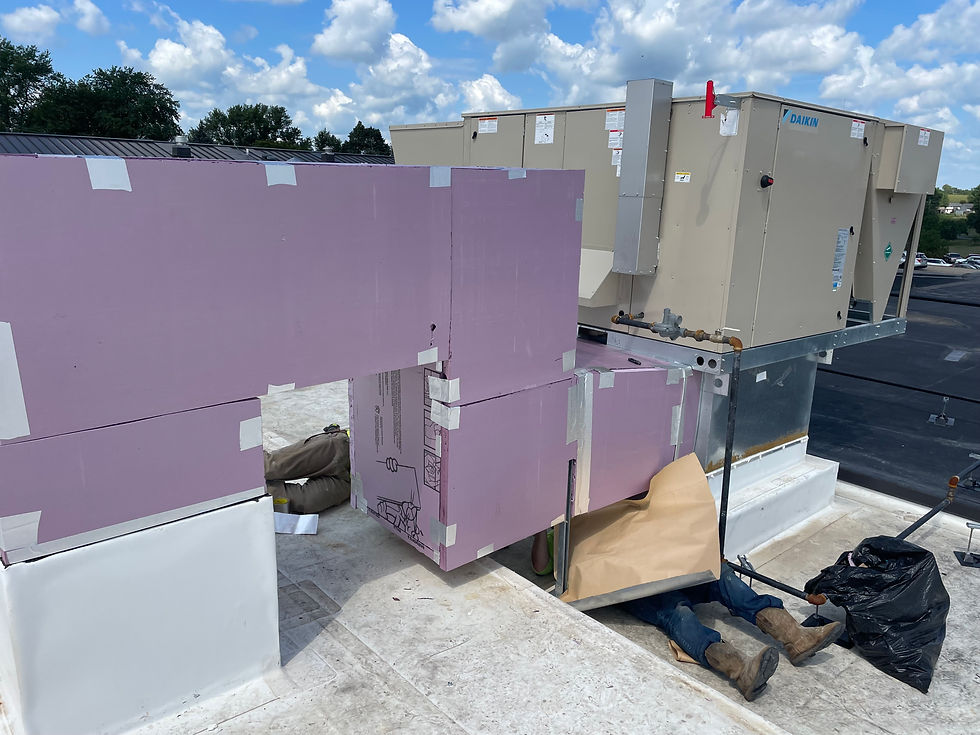Efficient Commercial Insulation Thicknesses for High Temperature Systems
- troninsulation

- Dec 29, 2022
- 1 min read
When it comes to mechanical insulation, choosing the right thickness is important for ensuring energy efficiency and comfort. In high temperature systems, such as boilers, Heating water and steam pipes, thicker insulation can be more effective at reducing heat loss or gain. However, it's important to strike a balance between insulation thickness and cost, as thicker insulation can also be more expensive to install and maintain.

How thick should it be?
So, how do you determine the most efficient commercial insulation thickness for high temperature systems? There are a few factors to consider:

Temperature: The higher the temperature of the system, the thicker the insulation should be. This is because higher temperatures result in more heat loss or gain, which requires more insulation to prevent.
Frequency of use: If a system is used frequently, it may be worth investing in thicker insulation to reduce the workload on HVAC systems and improve energy efficiency.
Duration of use: If a system is only used for short periods of time, thinner insulation may be sufficient. However, for systems that are in use for longer periods, thicker insulation may be more effective at maintaining consistent temperatures and reducing energy consumption.
Cost: Thicker insulation is typically more expensive to install and maintain. However, it may also lead to greater energy savings in the long run, making it a worthwhile investment.
Ultimately, the most efficient commercial insulation thickness for high temperature systems will depend on the specific needs of the building and the system in question. A professional insulation contractor can help to assess the needs of a building and recommend the most effective insulation solutions.




Comments